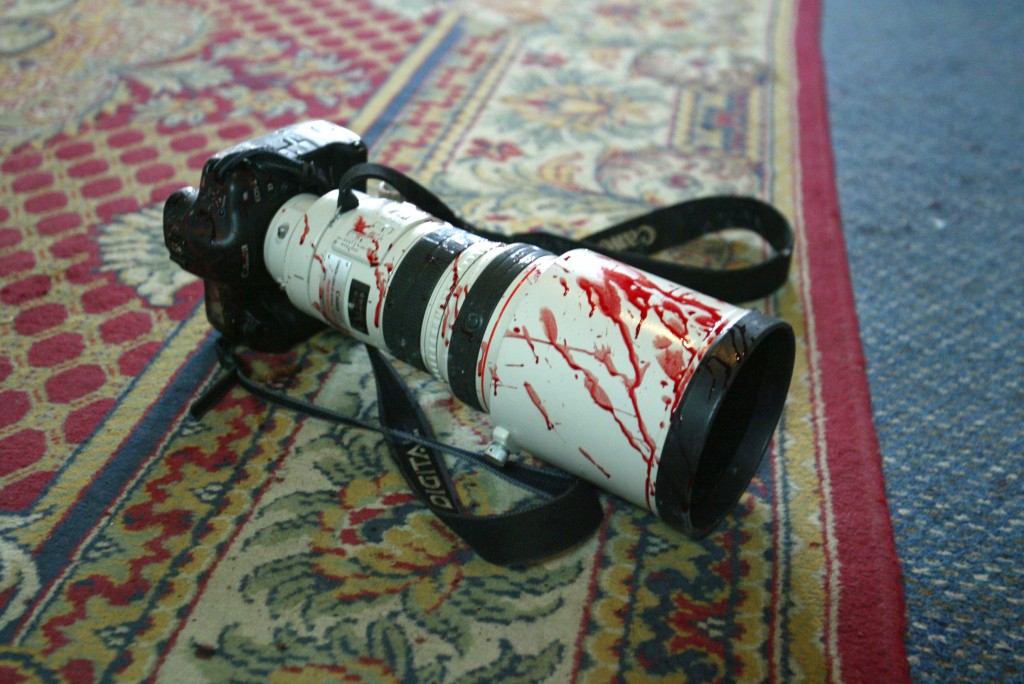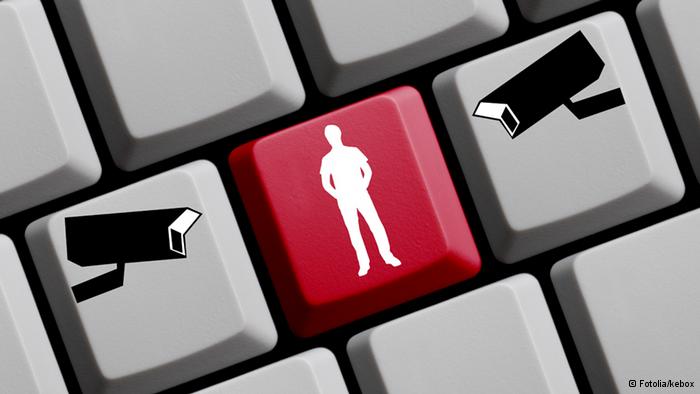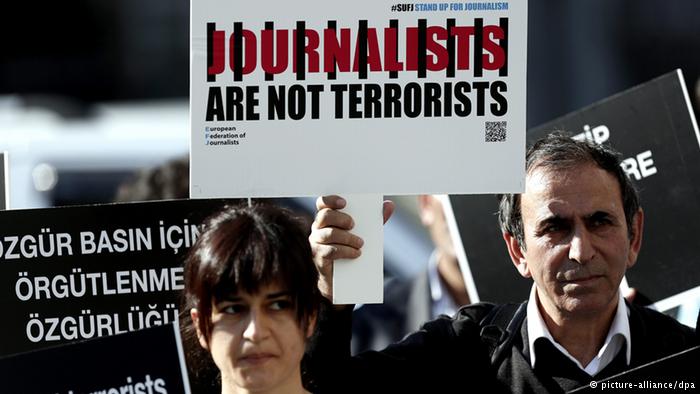Free speech declines in the information age, endangering journalists

Patrick Baz/AFP/Getty Image
Journalists are being imprisoned in Turkey, the Venezuelan media has been brought under government control and in Syria, dozens of journalists have been killed or threatened to silence with torture. The global spread of the internet was originally expected to usher in an age of participation and democracy. Yet, free speech is in a crisis, according to Joel Simon, executive director of the Committee to Protect Journalists. And it’s not just free speech that’s under attack, he points out, but also journalists – the last three years have been the most dangerous for journalists in at least two decades.
“We live in a period in which information is incredibly abundant and yet journalists are being imprisoned and killed in record numbers and press freedom is in decline,” says Simon, who has drawn on these findings for his recent book, “The New Censorship. Inside the Global Battle for Media Freedom.”
In his book, Simon outlines several reasons for this situation.
Firstly, the media institutions that used to dominate the news business have lost some of their power, including the ability to protect their reporters.
“The people who are out there today gathering the information are freelancers, some are local journalists and some are just eyewitnesses,” Simon explains. Because they often lack the journalistic experience and institutional safety nets that are crucial when reporting from conflict zones, they are much more vulnerable.
 Secondly, social media might be fantastic for finding and sharing information. But it’s also a gold mine for governments wanting to spy on people, Simon says, because it is now “a lot easier to harvest the technology to monitor our communications.”
Secondly, social media might be fantastic for finding and sharing information. But it’s also a gold mine for governments wanting to spy on people, Simon says, because it is now “a lot easier to harvest the technology to monitor our communications.”
Finally, journalists are simply not as essential as they used to be.
Previously, when journalists went off to cover a war, they used to identify themselves as journalists because that made them safer, says Simon. “The best insurance policy they had was their utility.”
Today, the information monopoly reporters long held has ended because technology allows groups, such as the Islamic State in Syria or drug cartels in Mexico, to communicate with the outside world without the help of reporters on the ground.
“Journalists are less important because there are alternative ways of communicating.”
But this isn’t just a problem of war zones or autocratic governments. The same dynamic, Simon says, comes into play even in democratic countries.
According to him, the main obstacle to freedom of expression is what he calls the “democratators” – a term he uses to refer to regimes such as the ones in Turkey, Russia and Venezuela.

These are governments that have often come to power through the ballot box and still enjoy popular support. Once in power, Simon says, they use their support to justify repressive strategies and present their censorship policies as being consistent with international norms.
Turkey’s president Recep Tayyip Erdoğan uses anti-terror laws, for example, to justify prosecutions against journalists.
Venezuela is also an interesting case. The leadership in Venezuela is using the excuse that the media operates in a monopolistic fashion (a claim which Simon says is not entirely trumped up) to shift media ownership to pro-government groups. Several newspapers – including the best-selling Últimas Noticias and Venezuela’s oldest newspaper, El Universal – have been sold to government-friendly buyers.
Press freedom is a global challenge
Article 19 of the Universal Declaration of Human Rights gives everybody the freedom “to seek, receive and impart information and ideas (…) regardless of frontiers.”
When the declaration was adopted in 1948, it was purely notional, Simon says, but technology has made it real.
People need to think about information as a “shared global resource,” he argues, as information can create deep inequalities when people in some parts of the world have access to it while those in other regions do not.
As a possible solution, Simon proposes a global freedom of speech agenda, supported by civil society groups, government organizations and business. It would be similar to international treaties on trade and climate change.
“There needs to be an awareness that freedom of expression is the defining issue of our time,” he says.
Related onMedia posts
Myanmar journalists cautiously optimistic about press freedom
Press freedom rankings ‘problematic’
Written by Jannis Hagmann, edited by Kate Hairsine



